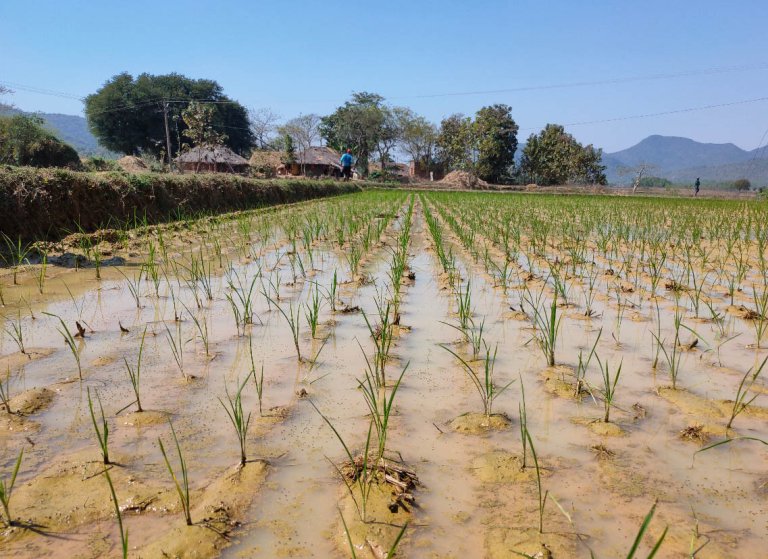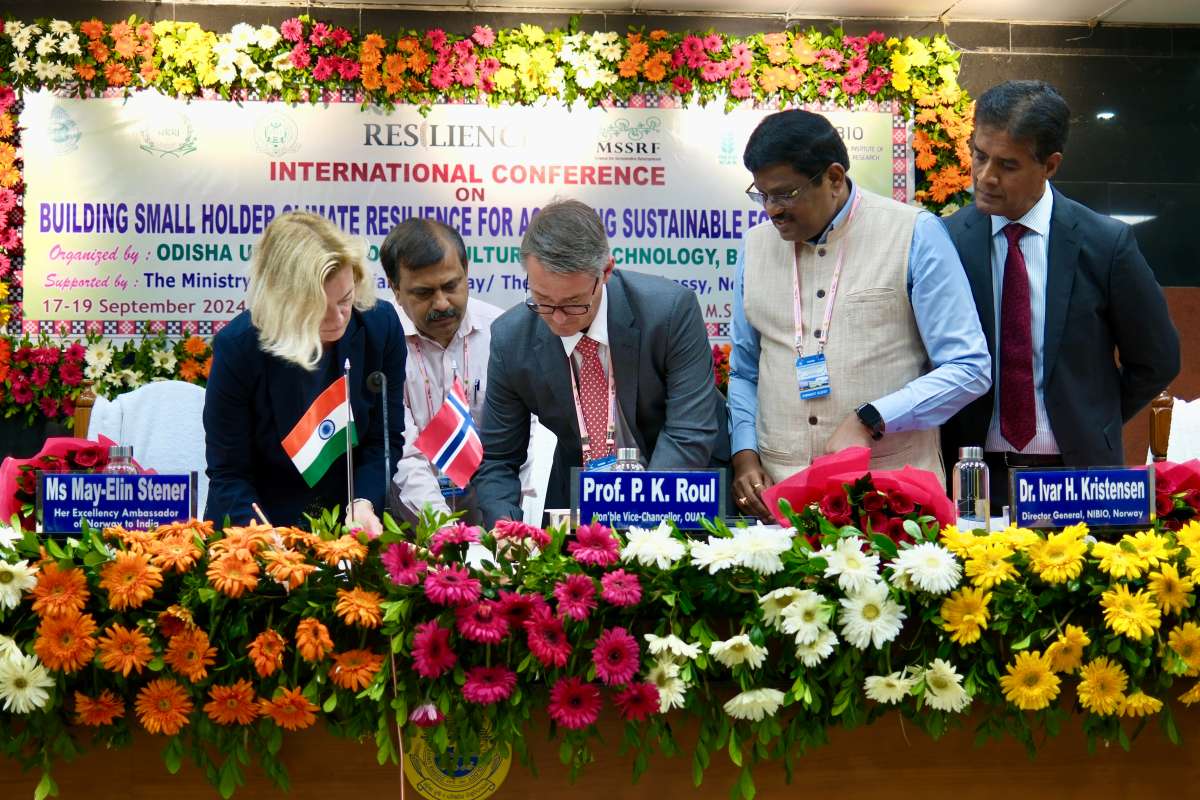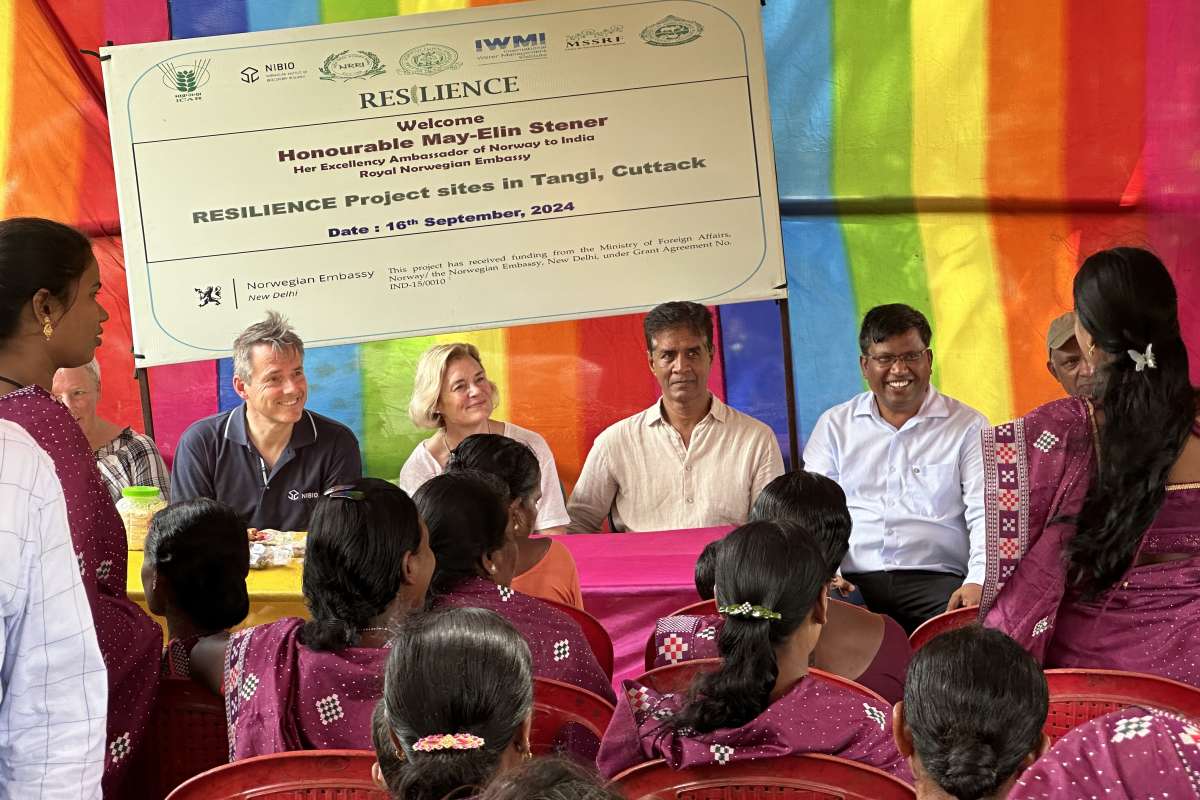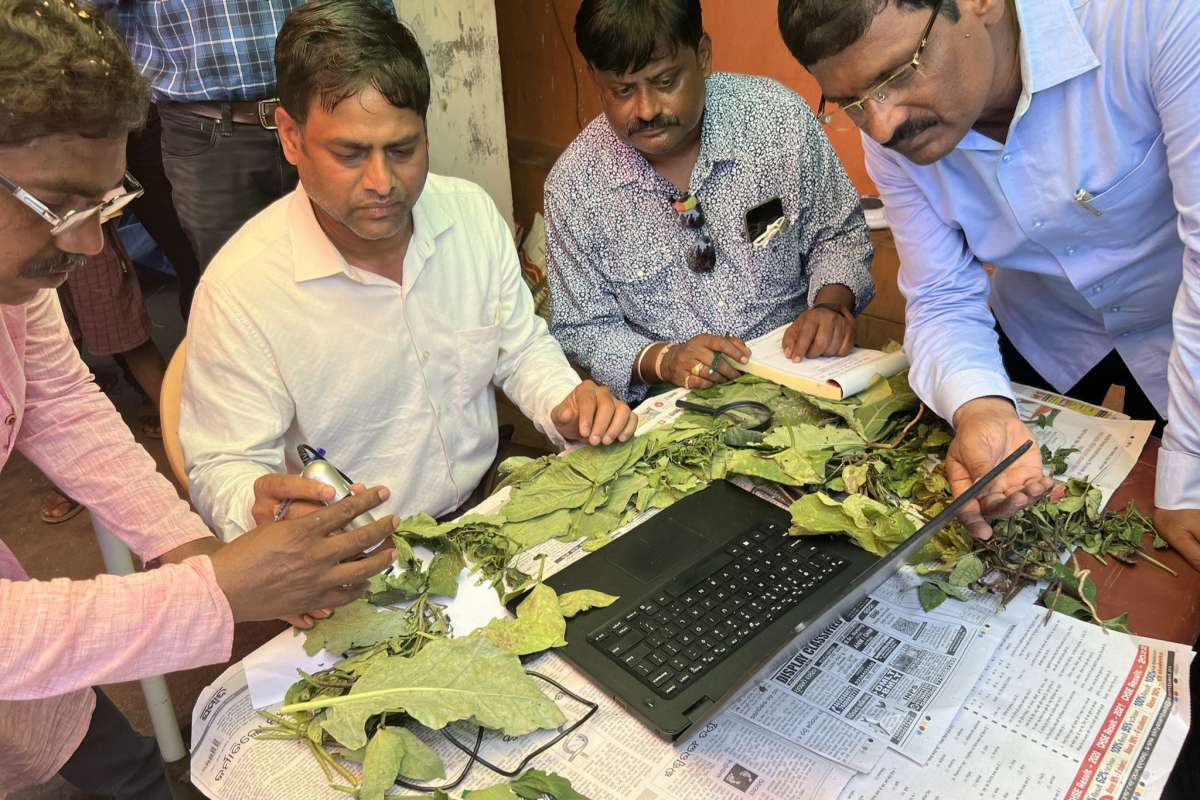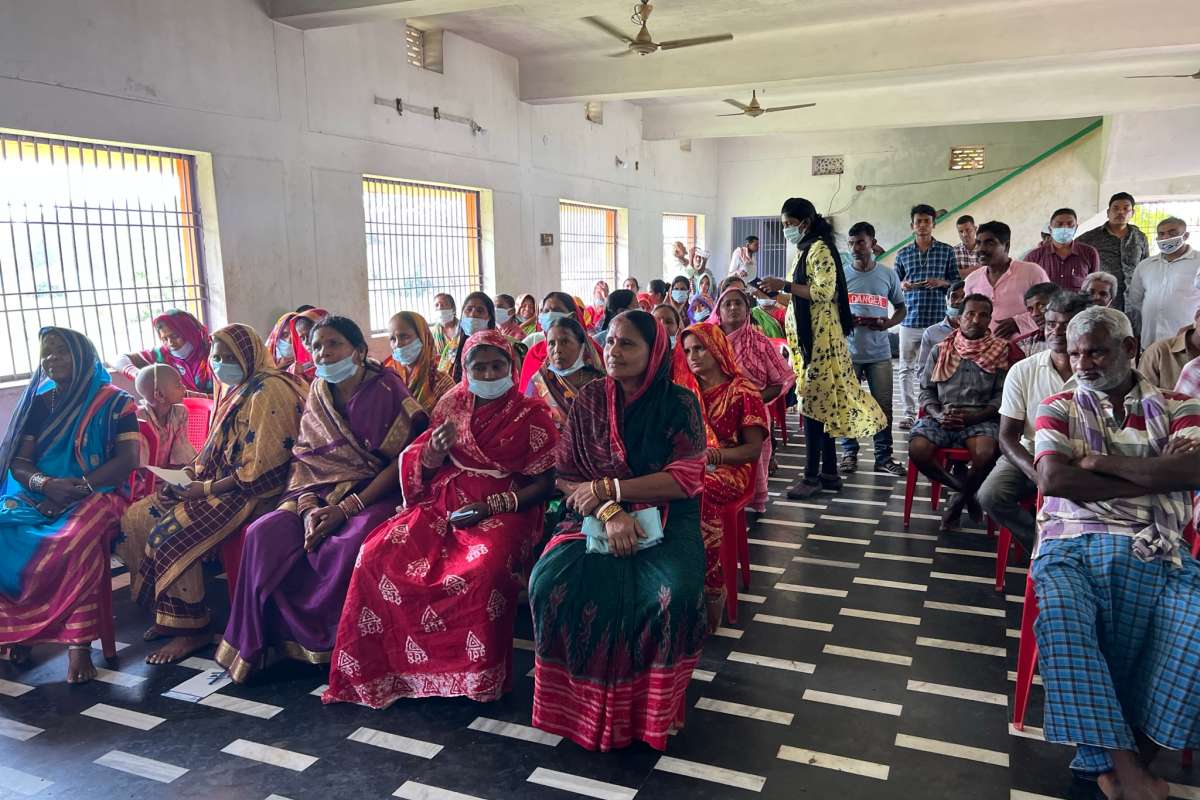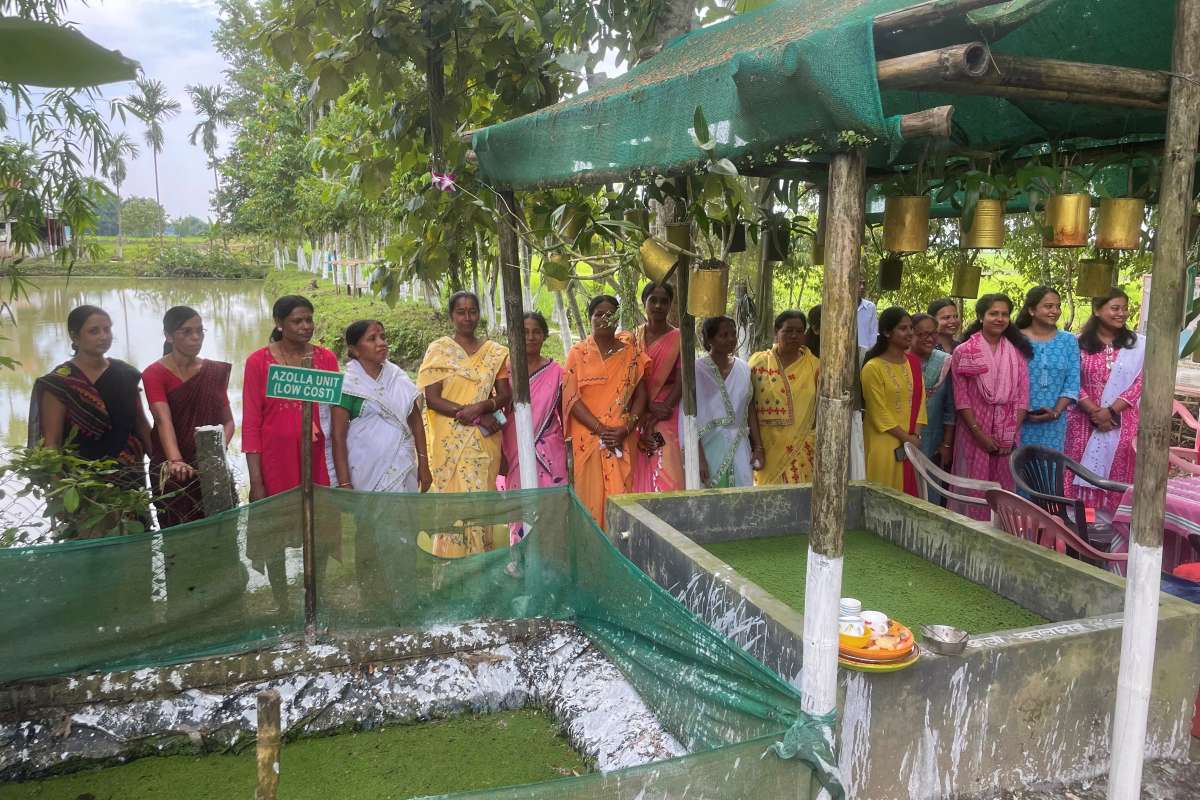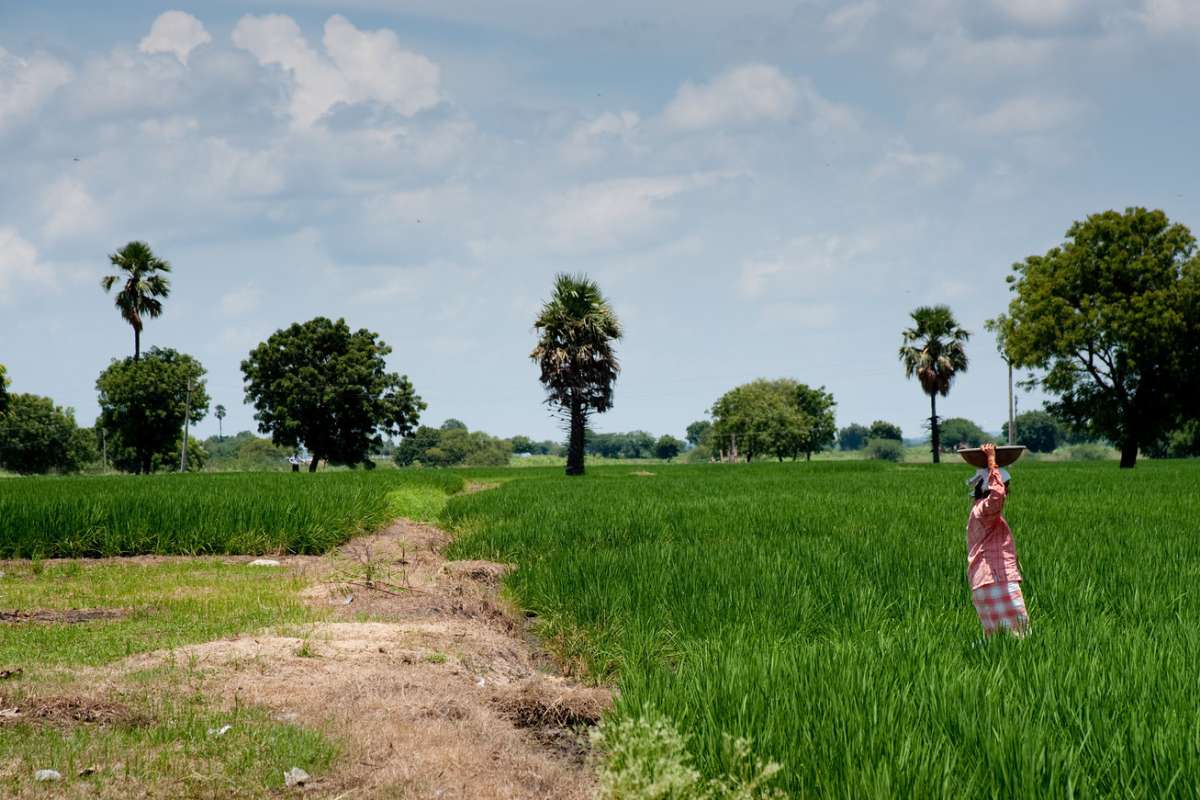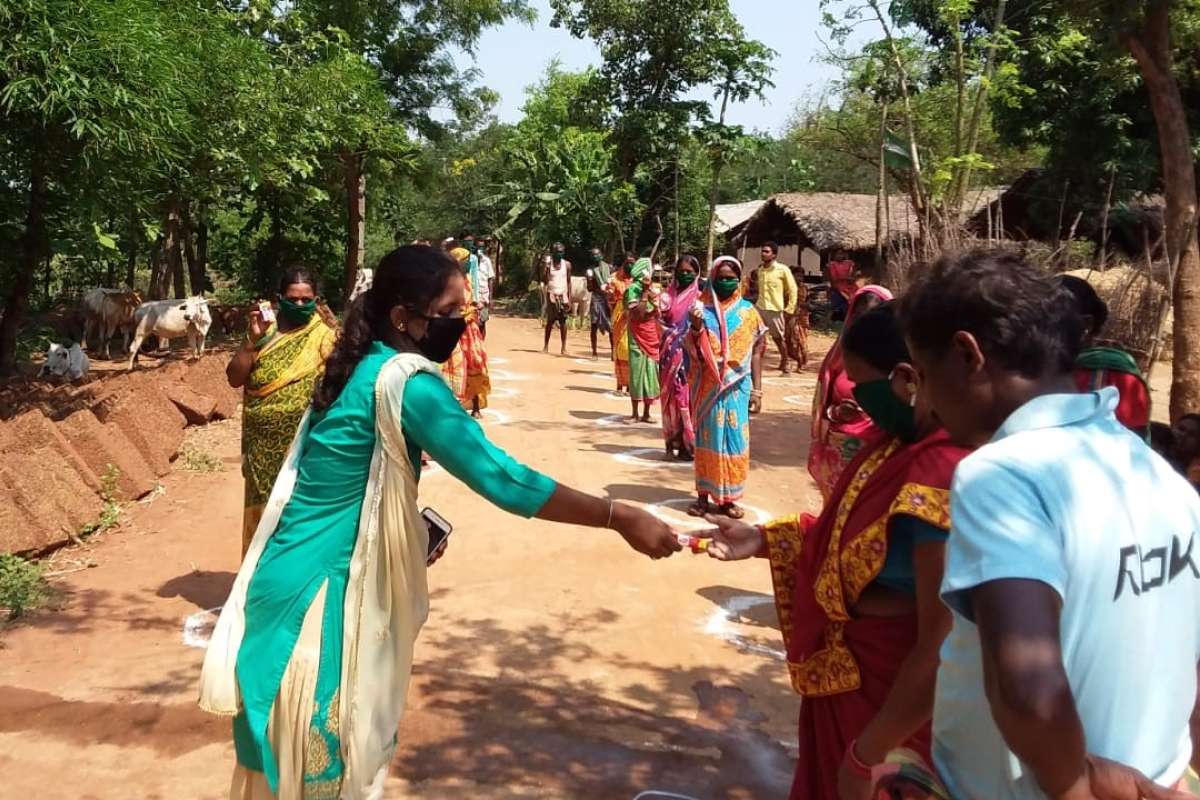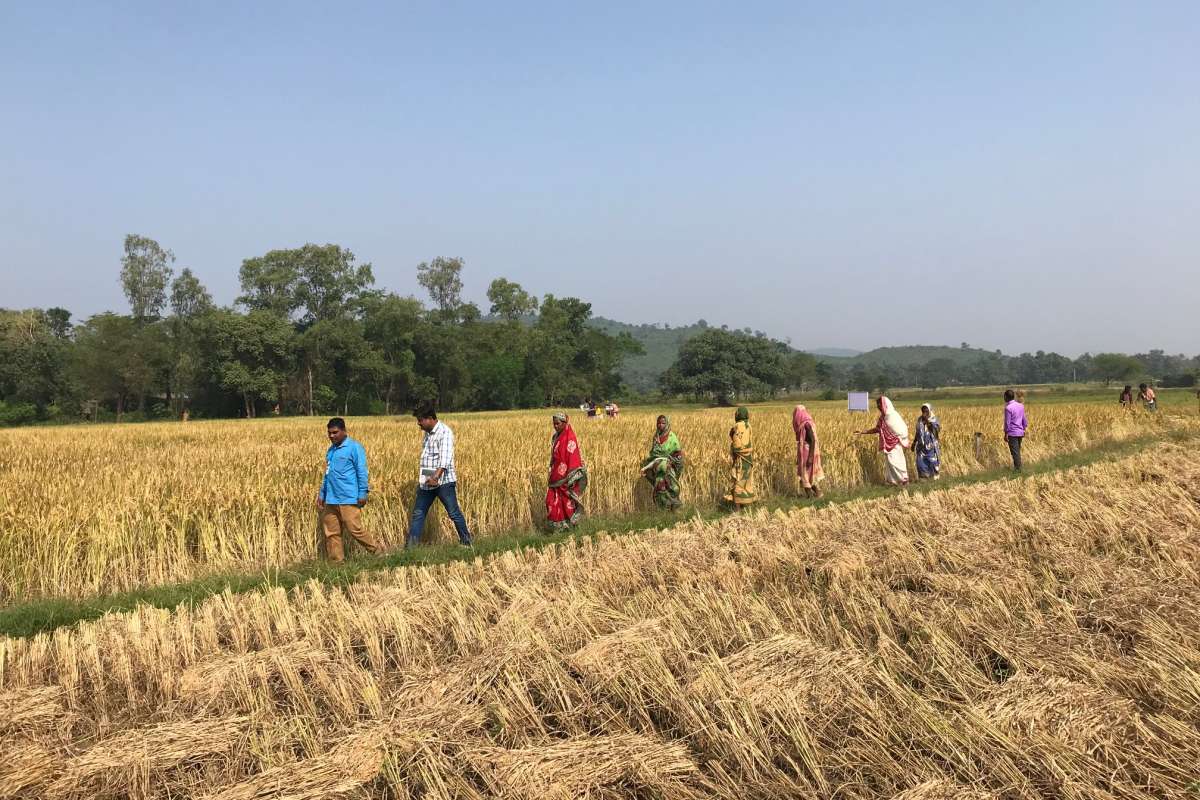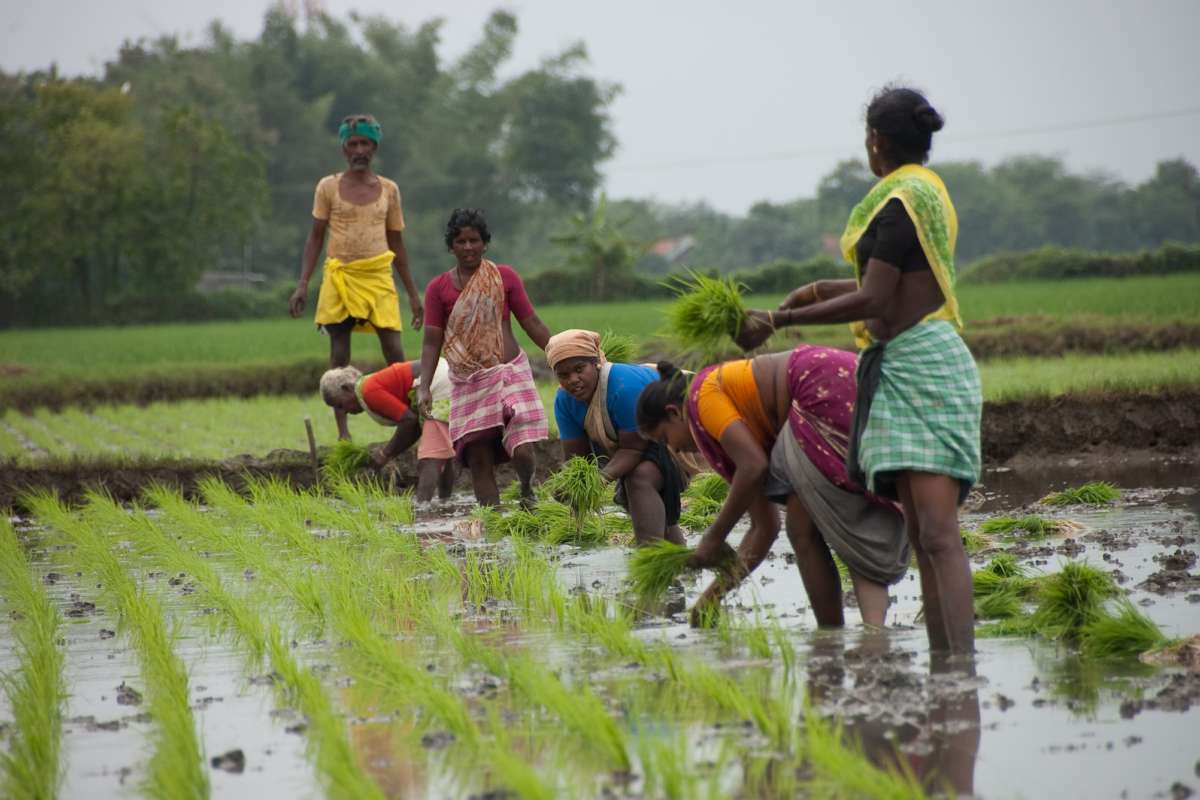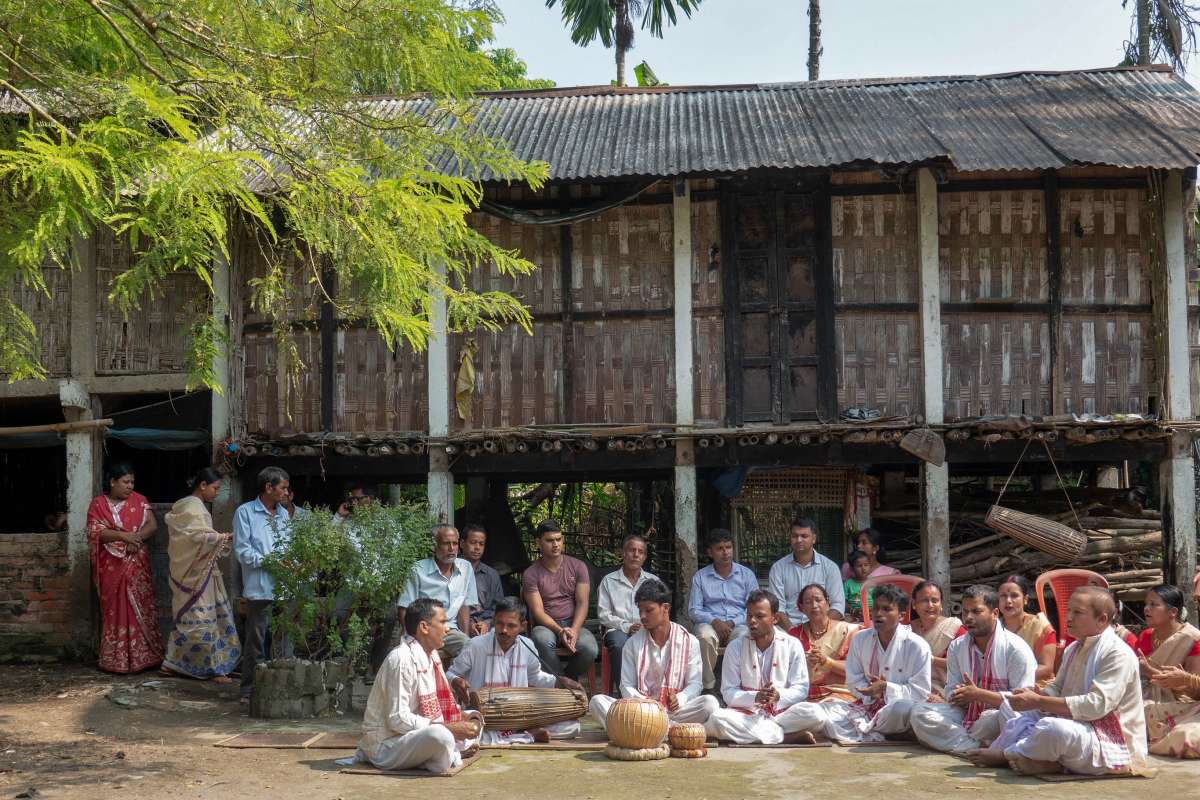Division of Environment and Natural Resources
UPSCALE

End: sep 2028
Start: oct 2024
A transformative climate action through upscaling climate resilient rice and other agricultural technologies supported by evidence-based knowledge and policy in India (UPSCALE).
More information
Recilience web page Policy brief No.1: June 2020 Capacity constraints to climate change adaptation in India: Policies, institutions and markets| Status | Active |
| Start - end date | 01.10.2024 - 01.09.2028 |
| Project manager | Sekhar Udaya Nagothu |
| Division | Division of Environment and Natural Resources |
| Department | Hydrology and Water Environment |
| Partners | Orissa University of Agriculture and Technology, OUAT, Odisha. India Assam Agricultural University, AAU, Assam, India. Indian Council of Agricultural Research - National Rice Research Institute , ICAR-NRRI, Cuttack, Odisha, India. M. S. Swaminathan Research Foundation , MSSRF, Chennai Office, India. International Water Management Institute , IWMI, Colombo, Sri Lanka/New Delhi, India, office. Norwegian Institute of Bioeconomy Research , NIBIO, Norway (Coordinator) |
| Total budget | 15.5 mill NOK |
| Funding source | Ministry of Foreign Affairs, Norway, and the Royal Norwegian Embassy, New Delhi. |
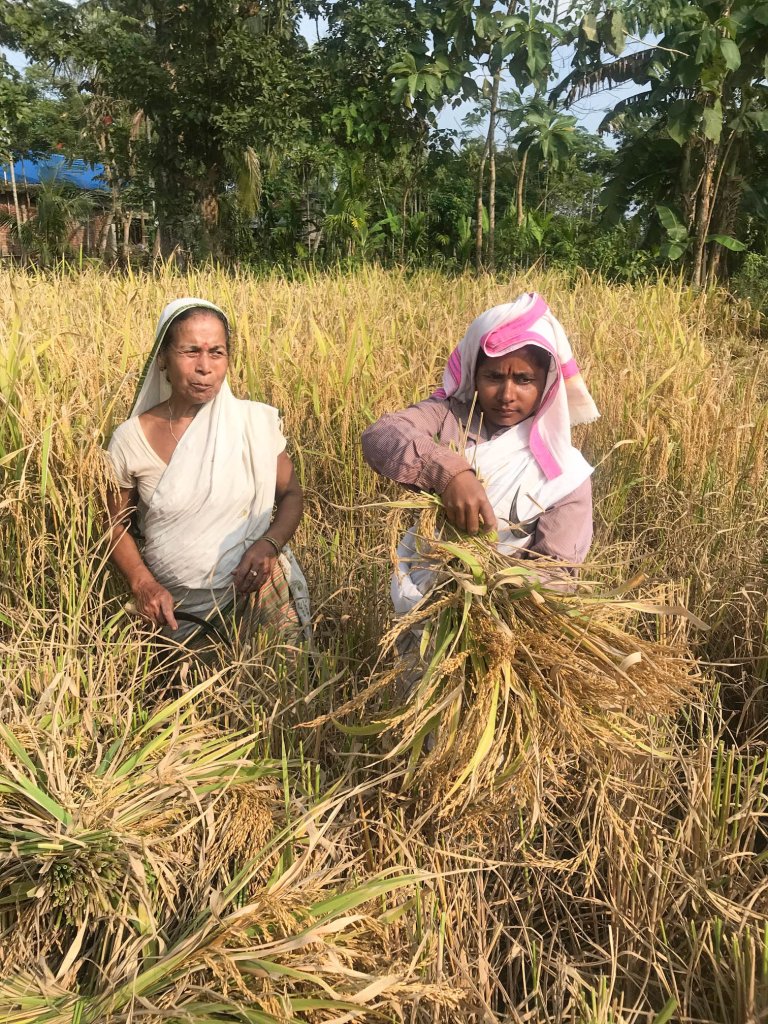
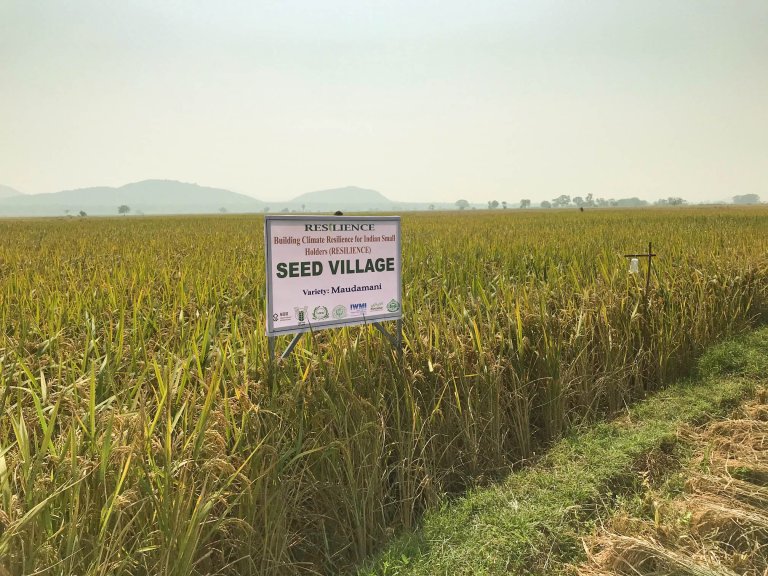
Focusing on innovation and environmental sustainability, the UPSCALE project will introduce advanced farming practices and eco-friendly technologies to boost crop yields, enhance ecosystem services, and reduce greenhouse gas emissions, benefiting smallholder farmers and the environment alike.
The project will be implemented in Odisha and Assam, two of India's most climate-vulnerable states, targeting over 40,000 farmers, 35-40% of whom will be women, across nine districts. The initiative aims to improve sustainable crop productivity and climate resilience through precision-based soil health and water management, integrated pest management, and value chain enhancement.
Environmental impacts include mitigating greenhouse gas emissions through solar energy use, site-specific nutrient management, crop diversification, and soil conservation. Additionally, the project will foster knowledge exchange on renewable resources like solar energy and biodegradable plastics. The project will also focus on biodiversity conservation in rice wetlands.
Key goals
Aligned with the Indo-Norway cooperation on climate and environment, the UN Sustainable Development Goals, India’s Nationally Determined Contributions to climate action, and Norway’s strategy for food security, the project will contribute to global climate adaptation and mitigation, including efforts outlined in the COP28 declaration on agriculture.
Key goals include:
- Enhancing value chains for small-scale food producers, encouraging them to join farmer organizations to improve access to technologies, inputs, and markets in the face of climate change.
- Promoting climate-resilient food production, including bio-based carbon capture and sequestration solutions.
- Developing digital and AI-based tools to improve weather forecasting services and provide timely information for addressing soil, animal, and plant health issues.
- Equipping small-scale farmers with knowledge to adapt to changing climatic conditions and continue food production.
- Empowering women and youth in food production, value addition, and marketing, particularly in climate-vulnerable areas.
Resilience
UPSCALE is the continuation of the Resilience project (2018-2024) where the main goal has been to improve agricultural productivity, adaptive capacity and livelihoods of smallholders to climate and economic changes. This was carried out by building resilience and strengthening the agri-product market value chains.
The project was implemented in the two states of Odisha and Assam, located in the east and northeast of India.
Specific objectives in Resilience
- To conduct vulnerability assessment and agro-ecological resource mapping;
- To carry out socially inclusive farmer-led climate-resilient/CSA technologies validation, and farmer-to-farmer (F2F) knowledge exchange;
- To develop a demand-driven, gender-sensitive knowledge extension system and F2F learning/capacity building;
- To develop market value chains for selected commodities; and
- To strengthen science-policy/government linkage, dissemination and outreach.
Project outputs
- Smallholder farmer vulnerability maps;
- Agro-ecological systems mapping and knowledge database established;
- Climate smart agriculture technologies toolbox developed;
- Five village knowledge centres (VKCs) established;
- Efficient food value chains pathways; and
- Science-policy linkages improved through regular stakeholder interaction.
Project outcomes
- Agricultural productivity of smallholders in Odisha and Assam improved;
- Number of farmers practicing CSA technologies increased;
- Women's participation in farm level decision making enhanced;
- Farmers participation in local institutional activities strengthened; and
- CSA inputs from the project into state level climate action plans implemented
